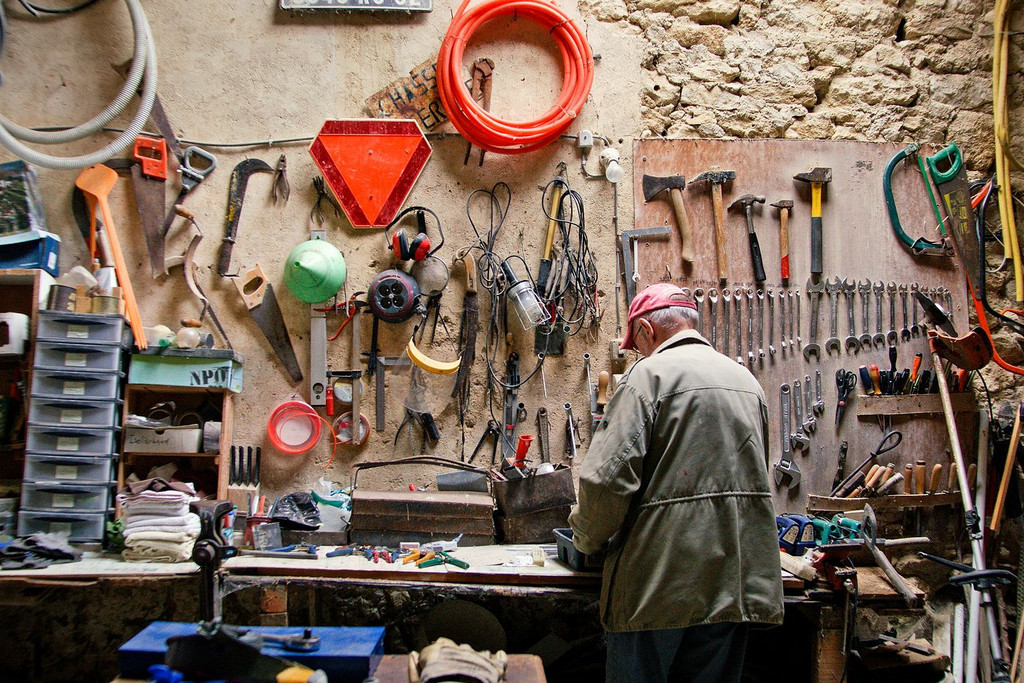Those who travel seek the unfamiliar. But what happens when there is nothing remote or exotic left in the world? What if the world loses its “edges” as a result of globalisation? Wouldn’t every location then become the “centre of the world”?
The Rotpunktverlag publishing house in Zurich is currently exploring such issues. This enterprising firm plans to publish a book providing answers next year. This will be full of essays, interviews, portraits and photographs. The “Die Mitte der Welt” (Centre of the World) book project is so time-consuming and expensive that the publisher tried out crowdfunding for the first time. It succeeded in raising a significant share of the funds required because a “crowd” of interested book-lovers were willing to pre-finance the yet-to-be-created book. They purchased it in advance before it had even been produced. What is more, the financial target set by the publisher was smashed.
An alternative view of consumption
This has proven a positive experience for Sarah Wendle from Rotpunktverlag as she is only too familiar with funding shortages in the culture sector: “To be honest, making books without external injections of capital is becoming increasingly difficult for small, independent publishers. This is especially true of books that are not mainstream and are moreover expensive to produce.” Works which do not really conform to the norm or are difficult to grasp in terms of content and form often do not receive any support from public bodies or private foundations.
Wendle believes that crowdfunding is more than just an additional source of finance. “The whole concept is essentially based on the notion of ‘we can do this together’.” In her view, crowdfunding is also an expression of the growing awareness of “alternative consumption”. People who support the realisation of a project in this way are close to the creator, enabling something special to flourish in niche areas and “ultimately taking the initiative”.
The publisher is very confident that crowdfunding will become increasingly important in Switzerland, especially in publishing but also in music and film production by independent artists. “The opportunity exists in this sector to clearly show what is achievable with the money,” she remarks. It always concerns “something tangible”.
The amount doubles from year to year
A clear trend has emerged. The amount raised by means of crowdfunding in Switzerland has increased two-fold since 2011. It had already reached 11 million Swiss francs in 2013. Professor Andreas Dietrich from the University of Lucerne is predicting a crowdfunding volume of 24 million Swiss francs for this year. Around half of this funding will go towards cultural and sporting projects. Start-up companies will receive the other half. Dietrich believes it is primarily companies which “have a simple product everyone can envisage” that will benefit from the boom. However, the “crowd” that invests in start-ups differs from that which supports cultural projects. It is primarily financial experts seeking alternative investment opportunities who back start-ups. Whereas it is idealists who tend to support authors, film-makers, theatre directors, cabaret artists, children’s book illustrators and designers – out of a passion for the idea and as an expression of public-spiritedness.
The nucleus of the crowd that supports a cultural project is generally the creator’s own family and circle of friends and acquaintances, explains Rea Eggli, co-founder of the “we make it” crowdfunding website, which was set up in 2012 and is now firmly established in Switzerland. She starts from the premise that a project will receive the desired support if over two thirds of the amount required can be raised from the person’s own circle. The just under one third remaining is contributed by people who come across the project by chance and support it spontaneously. People with a great idea but without an extensive personal network may find it difficult to achieve their objectives via crowdfunding. What is more, project organisers are not immune to the disheartening experience of only reaching those who already support them anyway. For example, the Residential Housing Community for Young People in Rafz (Zurich) raised the record amount of 54,000 Swiss francs. However, Mario Schmidli, a Board Member of the Rafz Assisted Living Association, indicated that there was not a single name among the donors that he did not already know: “This was a sobering experience as I had hoped to attract new financial backers via crowdfunding.”
Well-established principle of patronage
Crowdfunding in Switzerland is far from as popular as it is in English-speaking countries, for example. Is this explained by the fact that Switzerland is a small nation divided into various language regions? Lea Eggli of “we make it” is optimistic and does not see any disadvantage to Switzerland’s size or structure: “The Internet knows no boundaries. Campaigns can be launched in various languages and across national borders.” The nation’s culture is the decisive factor. “Switzerland, for example, is very well acquainted with the notion of donations and patronage and has a great many associations,” she says. People are used to demonstrating their commitment to initiatives rather than simply “liking” them.
Successful “Basel Model”
The principle of patronage is very well established in one region of Switzerland in particular – Basel. In this city with its strong tradition of patronage, crowdfunding projects also enjoy above-average success. There is an explanation for this. Basel set up Switzerland’s first cantonal crowdfunding website, which also received strong backing from Philippe Bischof, the director of the canton’s department of culture. “The site’s success has far exceeded our expectations,” he explains. “I am obviously delighted as it means many interesting cultural projects can be supported and implemented.” Over 70?% of the projects presented receive the support they are looking for here. In particular, the independent film and music scene receives a great deal of goodwill and support. Bischof believes that this also thankfully dispels concerns that have existed from the outset. “It is certainly not just popular or mainstream projects that are successful. Many experimental initiatives and high-quality niche productions also receive support.”
The authorities lending their full support to crowdfunding raises the question as to whether they hope that crowdfunding can make up for the increasingly scarce public resources available for culture. Bischof categorically dismisses this notion: “The public authorities cannot make such calculations.” He adds that it is imperative that “politicians do not think that crowdfunding can replace grants and infrastructure funding”. Crowdfunding campaigns generally only last a few weeks and concern individual projects. Bischof points out that effective and beneficial cultural policy has to guarantee support over longer periods of time. Crowdfunding can therefore “only ever be thought of as additional to public cultural funding. Crowdfunding complements cantonal cultural funding in those areas which do not necessarily meet the traditional funding criteria”.
Bischof outlines an ideal scenario:.Project organisers could seek public funding while at the same time using the cantonal crowdfunding website: “It is important that the commitment is unconditional.” Public promoters of culture have to fulfil their mandate without speculating on whether artists could raise the necessary funds by charming the crowd, he says.
Marc Lettau is an editor with the “swiss review”
Crowdfunding websites
Cultural, social and sporting projects:
We make it
https://wemakeit.com/
«Basel Model»
https://wemakeit.com/basel
100 days
http://www.100-days.net/
I believe in you
http://www.ibelieveinyou.ch
Business ventures: Investiere.ch
https://www.investiere.ch/
7crowd
www.7crowd.ch
Picture The principle of crowdfunding: donating money in the hope of achieving some good











Comments